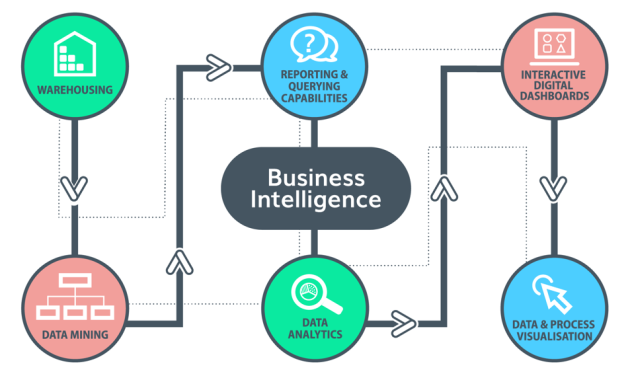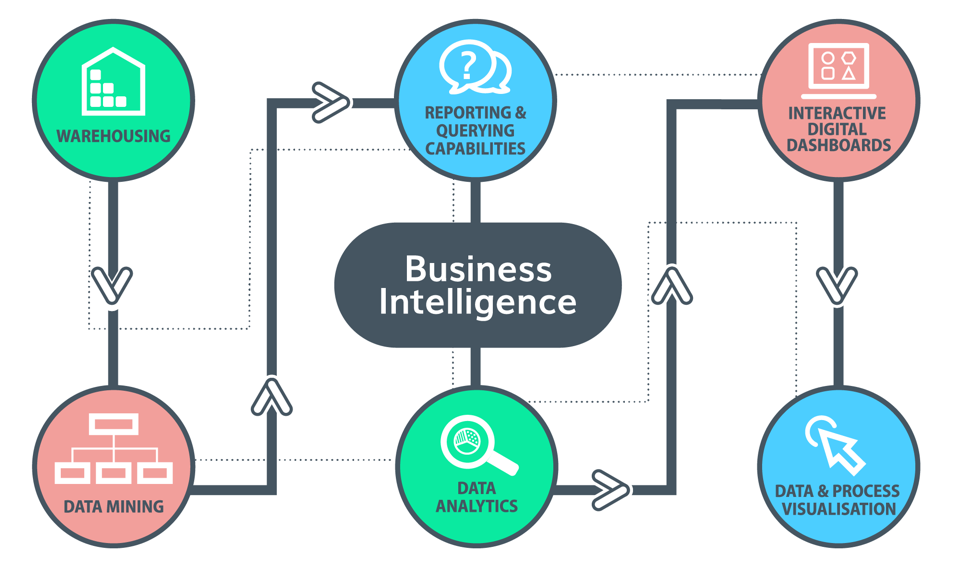
Business Intelligence Software That Unlocks Opportunities: A Deep Dive
In today’s data-driven world, businesses are constantly seeking ways to gain a competitive edge. One of the most powerful tools available is business intelligence (BI) software. This technology empowers organizations to collect, analyze, and interpret vast amounts of data. The goal is to make informed decisions and unlock hidden opportunities. This article delves into the world of business intelligence software. It explores its capabilities, benefits, and how it can transform your business.
Understanding Business Intelligence Software
Business intelligence software is a broad term encompassing various tools and applications. They work together to provide insights into business performance. At its core, BI software gathers data from disparate sources. This includes databases, spreadsheets, and cloud services. It then processes this data. This processing is to identify trends, patterns, and anomalies. The software presents this information in a user-friendly format. This format includes dashboards, reports, and visualizations.
The purpose of business intelligence software is to provide decision-makers with actionable information. It moves beyond simply reporting what has happened. It helps to understand why it happened and what might happen in the future. This predictive capability is a key differentiator. It allows businesses to proactively address challenges and capitalize on opportunities. The software supports strategic planning, operational efficiency, and improved customer experiences.
Key Capabilities of Business Intelligence Software
Business intelligence software offers a wide range of capabilities. They vary depending on the specific tool. However, some core functionalities are common across most platforms:
- Data Integration: The ability to connect to various data sources. This includes databases, CRM systems, and marketing platforms.
- Data Warehousing: Storing large volumes of data in a centralized repository. This enables efficient analysis.
- Data Analysis: Using various techniques to identify trends and patterns. This includes statistical analysis and data mining.
- Data Visualization: Presenting data in a visually appealing and easy-to-understand format. This includes charts, graphs, and dashboards.
- Reporting: Generating customized reports based on specific business needs.
- Predictive Analytics: Using historical data to forecast future trends and outcomes.
- Performance Management: Monitoring key performance indicators (KPIs). This allows for tracking progress against goals.
Benefits of Implementing Business Intelligence Software
The advantages of using business intelligence software are numerous. Businesses of all sizes and across all industries can benefit. Some of the key benefits include:
- Improved Decision-Making: BI software provides data-driven insights. This leads to more informed and strategic decisions.
- Increased Efficiency: Automating data collection and analysis saves time and resources. This improves overall operational efficiency.
- Enhanced Customer Understanding: Analyzing customer data reveals valuable insights. This helps to personalize experiences and improve customer satisfaction.
- Competitive Advantage: By understanding market trends and customer behavior, businesses can gain a competitive edge.
- Cost Reduction: Identifying inefficiencies and optimizing processes leads to cost savings.
- Better Risk Management: Identifying potential risks and vulnerabilities allows proactive mitigation.
- Improved Revenue: Data-driven insights help to identify new revenue opportunities. This also includes optimizing sales and marketing efforts.
Choosing the Right Business Intelligence Software
Selecting the right business intelligence software is crucial for success. Several factors should be considered. These factors ensure the chosen solution meets your specific needs. Consider the following:
- Business Needs: Identify your specific business goals and data analysis requirements.
- Scalability: Choose a platform that can grow with your business.
- Ease of Use: Select software with an intuitive interface and user-friendly features.
- Integration Capabilities: Ensure the software integrates with your existing systems and data sources.
- Security: Prioritize security features to protect your sensitive data.
- Cost: Evaluate the total cost of ownership, including software licenses, implementation, and training.
- Vendor Reputation: Research the vendor’s reputation and customer support.
Real-World Examples of Business Intelligence in Action
Business intelligence software is used across various industries. It helps organizations achieve significant results. Here are some examples:
- Retail: Retailers use BI software to analyze sales data. They optimize inventory levels and personalize marketing campaigns.
- Healthcare: Healthcare providers use BI to improve patient care. They also improve operational efficiency and reduce costs.
- Finance: Financial institutions use BI for fraud detection and risk management. They also use it to improve customer service.
- Manufacturing: Manufacturers use BI to optimize production processes and improve supply chain management.
- Marketing: Marketers use BI to analyze customer behavior. They also use it to optimize marketing campaigns and improve ROI.
The Future of Business Intelligence
The future of business intelligence software is bright. Technology continues to evolve rapidly. Several trends are shaping the future of BI:
- Artificial Intelligence (AI) and Machine Learning (ML): AI and ML are being integrated into BI platforms. This provides more advanced analytics and automation.
- Cloud-Based BI: Cloud-based BI solutions offer greater flexibility and scalability. They also lower the total cost of ownership.
- Self-Service BI: Self-service BI tools empower business users. They can conduct their own data analysis without IT assistance.
- Data Democratization: Making data accessible to everyone in the organization. This empowers data-driven decision-making.
- Mobile BI: Accessing BI dashboards and reports on mobile devices. This enables real-time decision-making on the go.
Conclusion: Unlocking Opportunities with Business Intelligence Software
Business intelligence software is a powerful tool. It unlocks opportunities for businesses of all sizes. By leveraging the capabilities of BI, organizations can make data-driven decisions. They can improve operational efficiency, and gain a competitive advantage. As technology evolves, BI will become even more essential. Businesses must embrace BI to thrive in today’s dynamic environment. The right business intelligence software can transform your business. It can help you achieve your goals and unlock new opportunities.
[See also: The Power of Data Visualization in Business, How to Choose the Right BI Tool, Data Analytics: A Beginner’s Guide]

